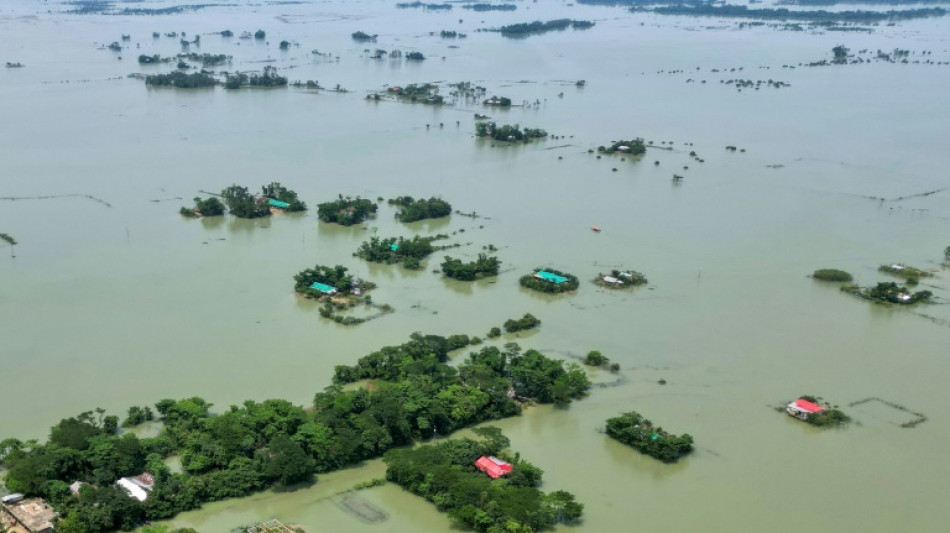
RBGPF
59.2400

Torrential rains in northeast India have sparked heavy flooding killing at least four people, government disaster officials said Wednesday.
More than a million people have been impacted by floods, according to government figures.
Monsoon rains cause widespread destruction every year, but experts say climate change is shifting weather patterns and increasing the number of extreme weather events.
Disaster authorities in the northeastern state of Assam said 38 people have been killed since mid-May when heavy rains battered the state, triggering floods and landslides.
India's weather department has issued alerts for Assam and neighbouring states warning of the risk of more flash floods.
Flood waters have damaged roads in the state, and the airforce rescued 13 fishermen stranded on an island.
A major portion of the Kaziranga national park, a UNESCO world heritage site and home to the highest number of one-horned rhinos in the world, has also been flooded.
"Forest guards have been put on alert," park official Arun Vignesh told AFP. "Hundreds of animals have started crossing the highway in search of higher ground".
Floods have also swamped vast areas in Bangladesh, downstream from India's northeast region.
Much of low-lying Bangladesh is made up of deltas as the Himalayan rivers of the Ganges and Brahmaputra slowly wind towards the sea.
Monsoon rains cause deluges and flooding every year in South Asia.
Last week, at least 14 people were killed after rains triggered landslides, lightning and flooding in Nepal.
In Bangladesh, at least nine people died in a landslide in June.
The same month, six people were killed in flash floods and landslides in Sikkim, an Indian state in the Himalayan foothills bordering China.
U.Siddiqui--DT